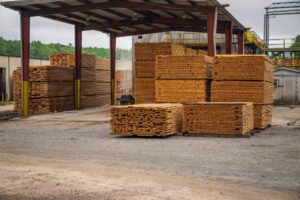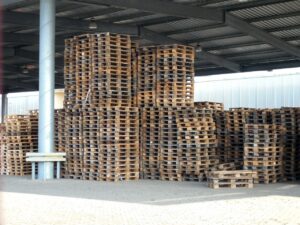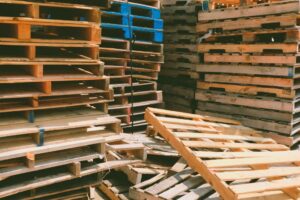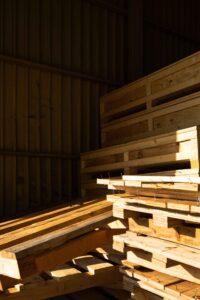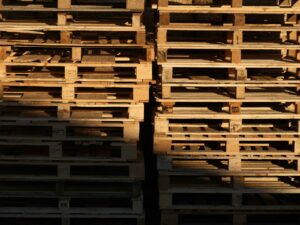Bamboo flooring is an increasingly popular choice among homeowners looking for sustainable, stylish, and budget-friendly options. Known for its unique aesthetics and durability, bamboo offers a fresh take on traditional hardwood floors. Here’s a detailed look at the pros, cons, and frequently asked questions related to bamboo flooring to help you make an informed decision for your space.
Pros of Bamboo Flooring
Sustainable and Eco-Friendly
Bamboo is a renewable resource that matures much faster than traditional hardwoods, usually within 3–5 years. This rapid growth makes it a sustainable choice for environmentally conscious homeowners.
Durability and Hardness
High-quality bamboo, particularly strand-woven bamboo, is one of the most durable flooring materials. Strand-woven bamboo can often exceed the hardness of oak, making it resistant to daily wear and tear, dents, and scratches.
Aesthetic Appeal
Bamboo flooring has a unique, modern aesthetic that appeals to a wide variety of tastes. It comes in several tones and textures, ranging from light and natural to dark and caramelized finishes, providing flexible options for various design styles.
Affordability
Compared to traditional hardwood, bamboo flooring is typically more affordable, offering a quality, stylish option that won’t break the bank. This affordability makes it ideal for homeowners who want the look of hardwood but at a lower price point.
Easy Maintenance
Bamboo floors are generally easy to maintain. Regular sweeping or vacuuming, combined with occasional mopping, will keep your bamboo floors looking fresh. The material is also resistant to water and stains, though still needs caution with moisture to avoid long-term damage.
Cons of Bamboo Flooring
Vulnerability to Moisture
Despite being more moisture-resistant than some hardwoods, bamboo is not waterproof and can swell or warp if exposed to excessive moisture. Bathrooms, kitchens, and basements may not be the best locations for bamboo flooring unless it is specifically rated for those environments.
Susceptibility to Scratches and Dents
While bamboo is durable, low-quality bamboo flooring is more susceptible to scratches and dents. Additionally, pet claws or heavy furniture can cause damage over time, requiring regular touch-ups or refinishing.
Limited Color Options
Bamboo doesn’t offer the same variety of color options as hardwood. Its natural color is light and only darkens through a process called carbonization, which can reduce its hardness. Homeowners looking for deep, rich colors may feel limited by bamboo’s natural hues.
Environmental Concerns in Production
Although bamboo is a renewable resource, some manufacturers use harmful chemicals, such as formaldehyde, during production. Choosing a high-quality, certified bamboo flooring brand can help mitigate this issue but may increase the overall cost.
Inconsistent Quality
Due to differences in manufacturing and the quality of bamboo materials, the quality of bamboo flooring can vary significantly from one brand to another. Higher-quality options can be more costly, and some budget-friendly brands may be less durable.
Frequently Asked Questions About Bamboo Flooring
1. How durable is bamboo flooring compared to hardwood?
Strand-woven bamboo flooring is typically harder than most hardwoods, including oak. However, horizontal and vertical bamboo types are generally softer, comparable to red oak in durability. Proper maintenance is essential to extend the lifespan of bamboo flooring.
2. Can bamboo flooring be installed in high-moisture areas like bathrooms or basements?
Bamboo flooring is not waterproof, making it less ideal for high-moisture areas like bathrooms and basements. Water-resistant versions are available, but you should still avoid excess moisture to prevent swelling or warping.
3. What are the main types of bamboo flooring?
The three main types of bamboo flooring are horizontal, vertical, and strand-woven. Strand-woven bamboo is the hardest and most durable option, while horizontal and vertical varieties are more affordable but may be less durable.
4. Is bamboo flooring pet-friendly?
Bamboo flooring can be pet-friendly, but scratches from claws are a possibility, especially with lower-quality bamboo. Strand-woven bamboo is the best option for pet owners, as it is harder and more resistant to scratches.
5. How do I maintain bamboo flooring?
Maintaining bamboo flooring is simple—regular sweeping or vacuuming and occasional mopping with a damp mop are all that’s needed. Avoid excessive water and opt for mild, pH-neutral cleaners designed for bamboo or hardwood flooring.
6. Can bamboo flooring be refinished?
Yes, bamboo flooring can be refinished, but only a few times over its lifespan, depending on its thickness. Strand-woven bamboo is more challenging to refinish due to its density, so hiring a professional for refinishing is often recommended.
7. How does the cost of bamboo flooring compare to hardwood?
Bamboo flooring is generally more affordable than traditional hardwood. However, the price varies depending on the quality and type, with high-end strand-woven options being closer in cost to mid-range hardwood flooring.
FAQ’s about Bamboo Flooring in India
1. Is bamboo flooring suitable for Indian climate conditions?
Bamboo flooring can work well in many parts of India but may require special attention in areas with high humidity. Using a dehumidifier or selecting water-resistant bamboo flooring can help maintain the material’s integrity in tropical and coastal regions.
2. How is bamboo flooring installed in India?
Bamboo flooring can be installed using several methods, including click-lock, glue-down, and nail-down techniques. Hiring a professional installer familiar with bamboo flooring can ensure correct installation and help avoid potential moisture issues.
3. What are the main types of bamboo flooring available in India?
The three primary types of bamboo flooring are:
Horizontal Bamboo: Offers a natural, textured look.
Vertical Bamboo: Has a linear, more uniform appearance.
Strand-Woven Bamboo: Known for its superior hardness and durability, ideal for high-traffic areas in Indian homes.
4. How does bamboo flooring handle temperature changes?
Bamboo flooring expands and contracts with temperature and humidity fluctuations, which can be significant in India. Installing bamboo flooring with expansion gaps allows it to adjust naturally, reducing the risk of warping or cracking.
5. How eco-friendly is bamboo flooring for Indian homes?
Bamboo is one of the most eco-friendly flooring options available, as it is a rapidly renewable resource. Homeowners in India looking to reduce their carbon footprint will appreciate bamboo’s sustainability, especially if choosing locally manufactured or FSC-certified products.
6. What is the cost of bamboo flooring in India?
Bamboo flooring prices in India range from ₹200 to ₹600 per square foot, depending on the type and quality. Strand-woven bamboo, while more expensive, offers better durability and is a preferred choice for high-traffic areas. The cost can be a factor, but it often balances out when considering its longevity.
7. Is bamboo flooring scratch-resistant?
Strand-woven bamboo is highly scratch-resistant, making it ideal for Indian homes with children or pets. However, low-quality or carbonized bamboo may scratch more easily, so choosing high-quality materials and taking preventive measures, such as using rugs or furniture pads, is advisable.
8. How do I clean and maintain bamboo flooring in India?
Cleaning bamboo flooring is straightforward: regular sweeping or vacuuming and occasional damp mopping with a mild cleanser. Avoid harsh chemicals or excessive water, as they can damage the bamboo’s finish. Eco-friendly or pH-neutral cleaners designed for bamboo or hardwood are ideal.
9. Can bamboo flooring be used in kitchens or bathrooms?
Bamboo flooring is not entirely waterproof and can be sensitive to moisture. While some water-resistant bamboo options are available, kitchens and bathrooms in Indian homes—especially in humid regions—may not be the best fit for bamboo floors. High humidity can damage bamboo over time, making other flooring materials more suitable for wet areas.
10. Is bamboo flooring termite-resistant?
Bamboo has a natural resistance to termites due to its dense structure, but it’s not entirely termite-proof. Applying termite-resistant treatments or selecting bamboo that’s been treated against termites can help make it more suitable for Indian homes, especially in regions where termites are a common concern.
11. Can bamboo flooring be refinished?
Yes, bamboo flooring can be refinished, but the frequency depends on the thickness and quality. Strand-woven bamboo is harder to refinish due to its density. For standard bamboo, refinishing every 5–10 years can help restore its original look and extend its lifespan.
12. How does bamboo flooring compare to laminate or hardwood flooring in India?
Bamboo offers a unique blend of affordability, durability, and eco-friendliness compared to hardwood. While laminate may be cheaper, bamboo is a more natural and sustainable choice, with a greater environmental benefit and an aesthetic that rivals traditional wood.
13. Is bamboo flooring a good investment for Indian homes?
Bamboo flooring is an excellent investment if maintained well. With a lifespan of up to 25 years, high-quality bamboo floors can add value to Indian homes, appealing to eco-conscious buyers and offering a stylish, durable alternative to other flooring options.
14. What certifications should I look for when buying bamboo flooring in India?
Look for certifications such as BIS and FSC (Forest Stewardship Council) and formaldehyde-free labels to ensure quality and safety. Certified bamboo flooring adheres to sustainable practices and lower chemical emissions, ensuring a safer indoor environment.
15. How do I know if bamboo flooring is of good quality?
Check for strand-woven varieties and certifications indicating formaldehyde-free or low VOC emissions. Ensure the bamboo has undergone a drying process to reduce susceptibility to moisture, and review product warranties as an indicator of quality.
Is Bamboo Flooring Right for You?
Bamboo flooring is a stylish, sustainable, and often affordable alternative to traditional hardwood. With proper care and a suitable environment, bamboo can provide years of beauty and functionality. Carefully consider where it will be installed, as well as the quality of the product, to ensure you get the best value for your investment.
Whether you’re attracted to its eco-friendly appeal or the unique look, bamboo flooring can be a fantastic choice that brings warmth and modern sophistication to your home.


